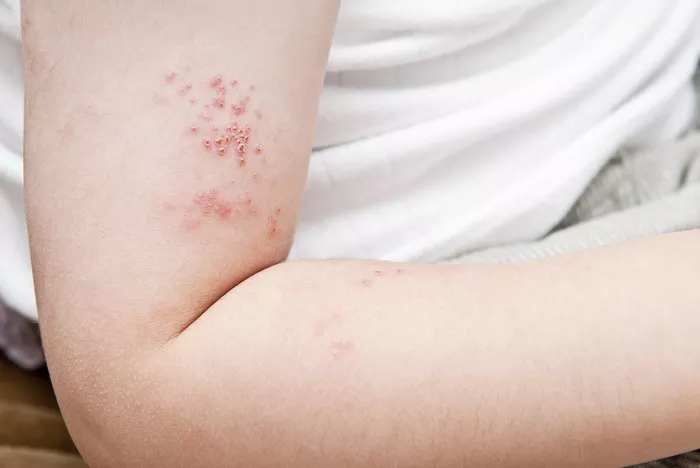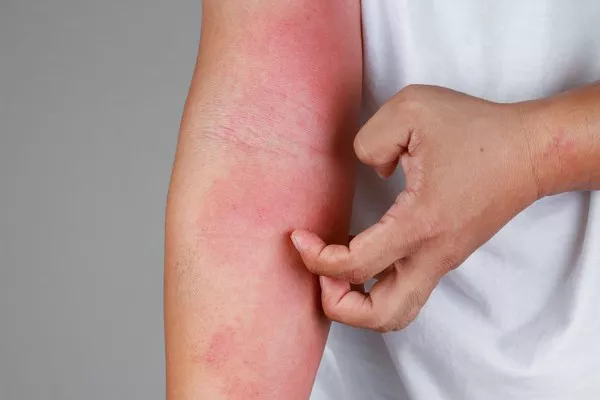Shingles is a condition that often raises questions, particularly when it comes to how it relates to chickenpox. Both diseases are caused by the same virus, the varicella-zoster virus, but they affect people in different ways. In this article, we will dive into whether adults can catch shingles from chickenpox and explore the relationship between these two conditions.
Understanding Chickenpox and Shingles
To understand the connection between chickenpox and shingles, it’s important to first know what each condition is.
Chickenpox is an illness that mostly affects children, though it can occur in adults too. It causes an itchy red rash that turns into fluid-filled blisters, which eventually crust over. The virus spreads easily through coughing, sneezing, or even touching something contaminated with the virus.
Shingles, on the other hand, is a painful condition that typically affects older adults or those with weakened immune systems. It appears as a rash, often in a band or strip on one side of the body, and is caused by the reactivation of the varicella-zoster virus, which lies dormant in the body after a person has had chickenpox.
While both diseases are linked to the same virus, they are different in terms of their symptoms, timing, and who is affected.
How Shingles Develops After Chickenpox
Once a person has had chickenpox, the varicella-zoster virus stays in their body. After the symptoms of chickenpox have disappeared, the virus remains dormant in the nerve tissue. Years later, if the immune system weakens due to stress, illness, or age, the virus can reactivate, leading to shingles.
Shingles is not caught directly from someone with chickenpox or another person with shingles. Instead, the virus reactivates in someone who has already had chickenpox.
Can Adults Catch Shingles from Chickenpox?
The question of whether adults can catch shingles from someone with chickenpox is based on some common misunderstandings about how the virus spreads. It’s important to note that you cannot catch shingles directly from another person. However, the virus can be transmitted from someone with chickenpox or shingles to someone who has never had chickenpox or been vaccinated for it.
This means that if an adult has never had chickenpox or has not been vaccinated against it, they can catch chickenpox from someone with the virus, whether it is from the chickenpox rash or shingles. Once an adult catches chickenpox, the virus remains in their body and can later reactivate as shingles.
However, if you have had chickenpox or received the chickenpox vaccine in the past, you are not at risk of catching shingles from someone else. The virus can only reactivate in someone who already has it in their system.
Can Adults Get Shingles After Chickenpox?
Yes, adults who have had chickenpox can develop shingles later in life. As mentioned, the varicella-zoster virus remains dormant in the body after chickenpox, and it can reactivate when the immune system is weakened. This reactivation leads to shingles.
Shingles is more common in adults over the age of 50, though it can occur at any age, especially in those with weakened immune systems, such as people undergoing cancer treatment, those with HIV/AIDS, or those taking immunosuppressive drugs.
Risk Factors for Developing Shingles
While anyone who has had chickenpox can develop shingles, several factors can increase the likelihood of the virus reactivating. These include:
Age: The older you are, the higher your risk. Most cases of shingles occur in people over the age of 50.
Weakened Immune System: People with weakened immune systems, such as those undergoing chemotherapy, taking immunosuppressive drugs, or those with certain diseases like HIV, are at greater risk.
Stress: Physical or emotional stress can weaken the immune system, making it easier for the varicella-zoster virus to reactivate.
Chronic Illness: Conditions like diabetes, autoimmune diseases, or chronic lung diseases can also increase your chances of getting shingles.
How Shingles Spreads
Although shingles itself cannot be caught from someone with chickenpox or shingles, the virus can still be spread from an individual who has shingles. The virus is present in the fluid-filled blisters of the shingles rash. If a person with shingles comes into contact with someone who has never had chickenpox, that person can develop chickenpox, not shingles.
Once the rash has scabbed over, the risk of spreading the virus decreases. However, anyone with shingles should avoid close contact with people who are immunocompromised, pregnant women who have never had chickenpox, and newborns, as they are at higher risk of complications.
Symptoms of Shingles in Adults
When shingles reactivates, it typically causes a localized rash that appears on one side of the body. The rash is usually painful and can be accompanied by a burning, tingling, or itching sensation. Other symptoms may include:
Pain: This is often the first symptom, occurring before the rash appears. The pain can be sharp, burning, or throbbing.
Rash: The rash typically begins as red patches that quickly develop into blisters filled with fluid.
Fever and Headache: Some people may experience mild fever and headache along with the rash.
Fatigue: A general feeling of tiredness or weakness is common in people with shingles.
If left untreated, shingles can lead to complications, including postherpetic neuralgia (persistent nerve pain) and scarring from the rash.
Prevention of Shingles
There is currently no way to prevent the varicella-zoster virus from staying dormant in the body after chickenpox. However, there is a vaccine available to help prevent shingles. The shingles vaccine, recommended for adults aged 50 and older, can reduce the risk of developing shingles and the severity of symptoms if the virus does reactivate.
In addition to the shingles vaccine, the chickenpox vaccine is another important preventive measure. If an adult has never had chickenpox or received the chickenpox vaccine, they should consider getting vaccinated. The chickenpox vaccine can prevent the initial infection, which in turn eliminates the possibility of developing shingles in the future.
Treatment for Shingles
If you do develop shingles, there are treatments available to help manage the symptoms. These treatments focus on reducing the severity and duration of the illness. Antiviral medications, such as acyclovir, valacyclovir, or famciclovir, can help reduce the length of the outbreak and prevent complications if started early. Pain relief medications, such as over-the-counter pain relievers or prescription options, may also be necessary to manage the discomfort.
It is important to consult a healthcare provider as soon as possible if you suspect you have shingles, as early treatment is key to reducing the severity of symptoms.
Conclusion
In summary, adults cannot catch shingles directly from someone with chickenpox or another person with shingles. However, if an adult has never had chickenpox or been vaccinated for it, they can catch chickenpox from someone with the virus. Once an adult has had chickenpox, the varicella-zoster virus remains dormant in the body and can reactivate later in life as shingles, especially if the immune system becomes weakened.
If you are at risk of shingles, vaccination is a key prevention strategy. Adults over 50 should consider getting the shingles vaccine to reduce their risk of developing the condition. If you do develop shingles, seek medical advice promptly to manage the symptoms and prevent complications.
Related topics:

























